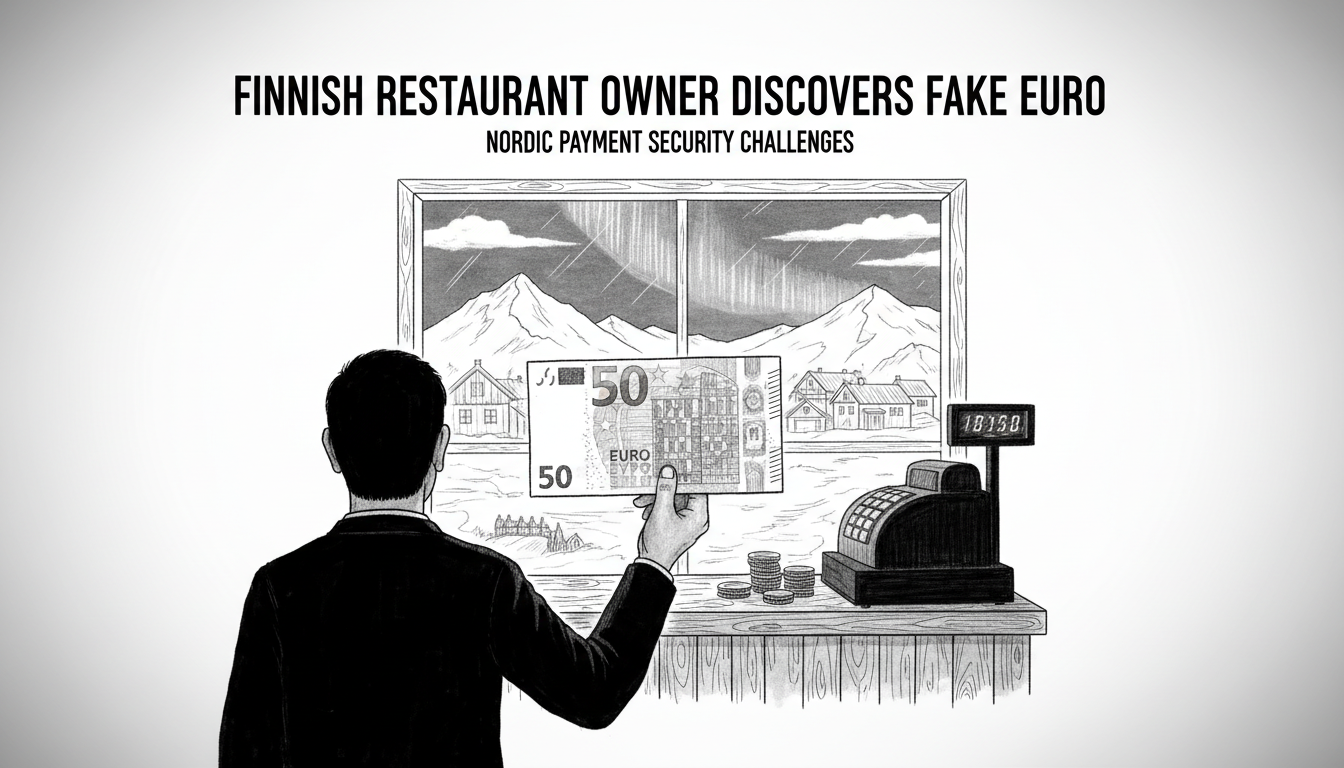A restaurant owner in Hämeenlinna, Finland, uncovered a sophisticated counterfeit 50-euro note during a routine morning check. Osman Avci, who operates Asema Ravintola near the city's train station, returned from visiting a friend to find the suspicious bill in his cash register. His staff reported a woman had used it to purchase a lonkero cocktail for takeaway, then demanded a refund when informed the drink couldn't be consumed on premises.
Avci immediately recognized the banknote as fake upon closer inspection. The bill contained telltale signs of forgery, including text identifying it as 'copy' material intended for photographic use. Someone had deliberately scratched at this text in an attempt to remove the evidence. The restaurant owner believes the customer knew exactly what she was passing off, stating she 'knew one hundred percent' the money wasn't legitimate.
This incident highlights ongoing challenges small businesses face across Finland regarding payment security. Many establishments lack advanced counterfeit detection equipment, relying instead on staff vigilance. Avci's restaurant doesn't own a currency validator, though neighboring businesses do possess such devices. When tested at a nearby store, the fake note surprisingly passed through their detection machine four consecutive times, baffling both Avci and the store staff. Yet the same bill was rejected by gaming machines, revealing inconsistencies in verification systems.
Police collected the counterfeit note and reviewed security camera footage as part of their investigation. They asked Avci if he wished to file a formal complaint, but the restaurant owner declined due to time constraints. He considered the 50-euro loss less burdensome than navigating police paperwork during busy operations. His primary concern was alerting the community, suspecting the individual might possess additional counterfeit bills.
This marks the second counterfeit incident Avci has encountered in three years. Previously, a forged 10-euro note slipped through during a hectic weekend service. The experience has prompted new staff protocols at Asema Ravintola. Employees now receive enhanced training on identifying suspicious currency, particularly larger denominations. The restaurant has implemented a policy refusing 200-euro bills except from regular customers, recognizing higher-value notes present greater fraud risks.
Counterfeit currency remains an ongoing concern throughout the Nordic region, despite advanced payment systems. Finland's central bank regularly updates security features on euro notes, but sophisticated forgeries still circulate. Small businesses often bear the financial brunt of these crimes, as banks typically don't reimburse accepted counterfeit money. The incident underscores how even routine transactions require vigilance, particularly in establishments with high customer turnover like restaurants and bars near transportation hubs.
For international readers and expats in Finland, this case serves as a reminder to carefully examine larger bills during transactions. While digital payments dominate in Nordic countries, cash remains in circulation and requires proper verification. Tourists and residents alike should familiarize themselves with euro security features, including holograms, raised print, and watermark elements that help distinguish genuine currency from fakes.

